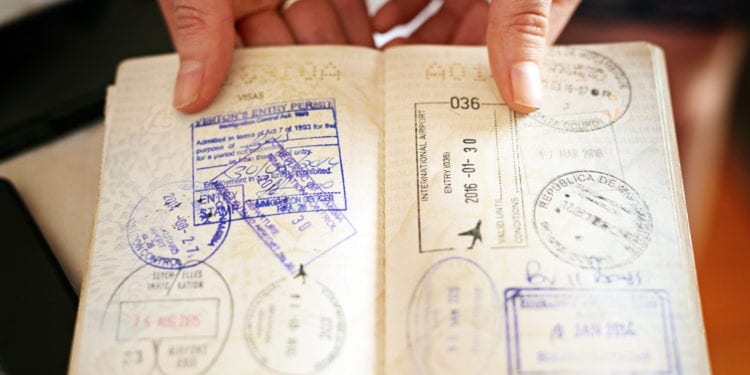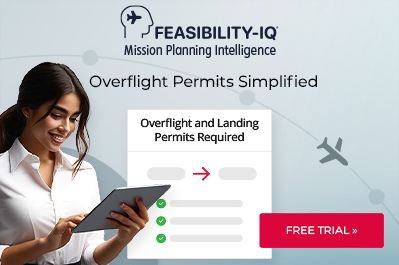APIS, TSA and DOT Authorization Info for Non-U.S. Registered Business Aircraft

For business-aviation operators, the Advance Passenger Information System (APIS) process is generally trouble-free, so long as the rules and requirements are well understood and followed. However, incorrect filings can result in delays and potential fines. It’s important to keep in mind that filing APIS does not negate the requirement to notify customs of your arrival. Contact Universal’s Global Regulatory Services Team for the latest APIS filing requirements and to help manage APIS revisions. Here are some important points to know:
1. APIS process is different for private non-revenue as opposed to charter (non-scheduled commercial) operators
Private non-revenue operators submit e-APIS online, while charter operators submit commercial APIS in a different format. While some non-U.S. operators may prefer to designate their flights as private non-revenue, certain criteria must be met. If there’s compensation for a flight, it must be designated as a charter flight. Be aware that your filing designation will likely be checked on arrival by customs. If you’ve filed as a private flight but are operating as a charter flight, this will cause delays and fines in some cases if the error is determined to be purposeful. Also, please note that if your flight is designated as diplomatic, APIS is not required. The operator submits information to the State Department, and this is forwarded to customs.
2. Know your deadline to arrange APIS
Generally, you’ll file APIS prior to contacting customs. Filing APIS does not serve as customs or landing rights notification. Customs must be notified separately of your arrival. You cannot simply file APIS and arrive at the airport.
3. Revisions may be required when changes are made to crew or passenger list
For removal of a passenger or crew member, a new APIS filing is not required. Also, an arrival change within the same local date doesn’t require re-filing. Best practice is to advise customs of the time change or the crew and/or passenger removal. Re-submitting APIS is necessary for any addition to crew and/or passengers, change in arrival date, change of aircraft, or change in airport. If you’re unsure which changes require revisions, it’s best to notify customs and verify requirements. In event of a weather diversion, you don’t have to re-file APIS, but should notify customs at the new port to avoid delays.
4. Carrier ID number is necessary in order to request customs
Charter operators need to have a carrier ID in order to submit APIS prior to contacting customs. If you don’t have one, you will have to fill out a carrier ID application at www.cbp.gov, and you’ll be provided with a three-letter and/or digit identifier. The process takes less than 48 hours, except during weekends, where it will take longer.
5. Errors in APIS transmissions may result in fines
Consequences of errors in APIS filings depend on the airport of entry. Typically, this will cause delays, and fines may be involved if the error is deemed purposeful or has been made repeatedly. Fines are likely if APIS has not been filed at all or in cases where onboard individuals are not included in the APIS notification.
6. A Master Crew List (MCL) is required for charter APIS
An MCL must be on file and maintained by the operator or a 3rd-party provider. Having Universal’s Global Regulatory Services team maintain your MCL is beneficial in terms of accuracy and re-confirmation that all flight crew are on the list.
7. A TSA waiver may be required for non-U.S. registered aircraft operating to the U.S
If a trip is covered by APIS for entry into or out of the U.S., a TSA waiver is not required. TSA requirements come into play when there’s domestic travel within the U.S. or when overflying the U.S., depending upon country of aircraft registration and weight of aircraft. Be aware that aircraft registered in certain countries (including China, Russia, Iran, Syria, and North Korea) may require FAA special-routing clearance for all U.S. territorial airspace. In order to do this, you must have a TSA waiver request submitted before you can start the process of obtaining routing approval. The FAA monitors flights to ensure correct routing is followed. Any changes on approved routings must be updated with FAA.
8. TSA waiver lead time is five days, and waivers are valid up to 90 days
TSA waivers may be applied for online and typically require five business days to process. A waiver is valid for up to 90 days and can cover one aircraft or a fleet. Any change to airports, aircraft, crew, or passengers requires a waiver revision, which also typically requires five business days to process.
9. Department of Transport (DOT) authorization may be needed
Non-U.S. registered operators conducting frequent non-scheduled commercial / charter operations may require authorization from the Department of Transport (DOT). A foreign operator is allowed up to six operations into the U.S. under commercial status. For more than six entries into the U.S. a year, you’ll need a DOT exemption, known as a Part 375 authorization. This is an additional requirement other than APIS and the TSA waiver.
Mexico-based operators conducting non-scheduled commercial / charter operations need a DOT 49 USC §41301 Exemption (known as the DOT 49). This exemption allows a Mexico-based operator to conduct passenger charter operations between Mexico and the United States, and other passenger charters in accordance with 14 CFR Part 212, using small aircraft. The exemption also grants the applicant stopover privileges and continued relief from the requirement to provide advance notice of each flight, or series of flights, between Mexico and the United States.
Conclusion
Mistakes with APIS filings and TSA waiver applications can be avoided with sufficient pre-planning. It’s important to remember that APIS does not serve as customs or landing rights notification, as customs must be notified separately. If a TSA waiver is required for your particular operation, always plan on at least five business days lead time. Working with Universal’s Global Regulatory Services team will help ensure that U.S. customs and TSA formalities are uneventful experiences.




